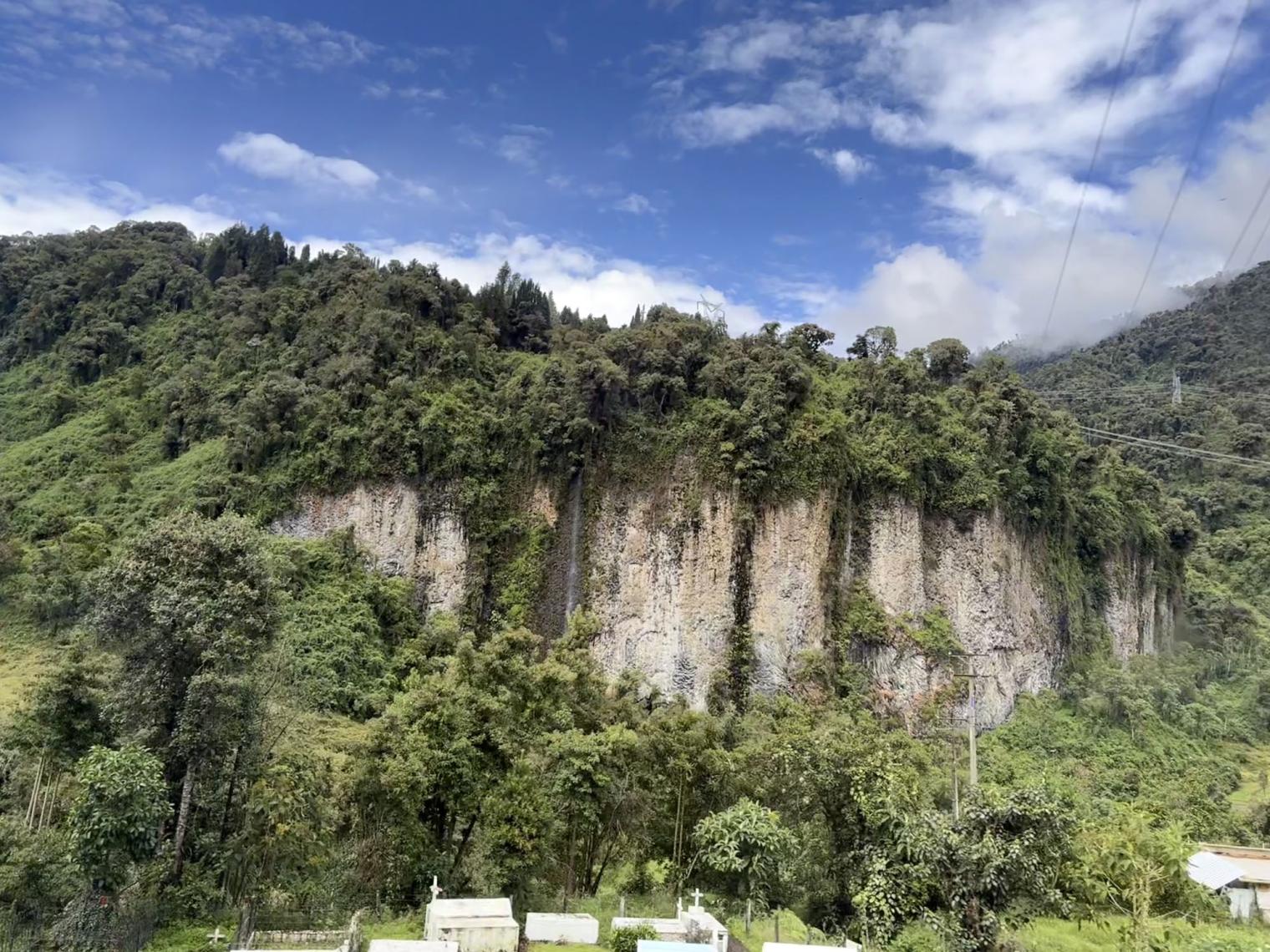HHS Students Find Value in Shoulder-to-Shoulder Ecuador Trip
Jun 4, 2025
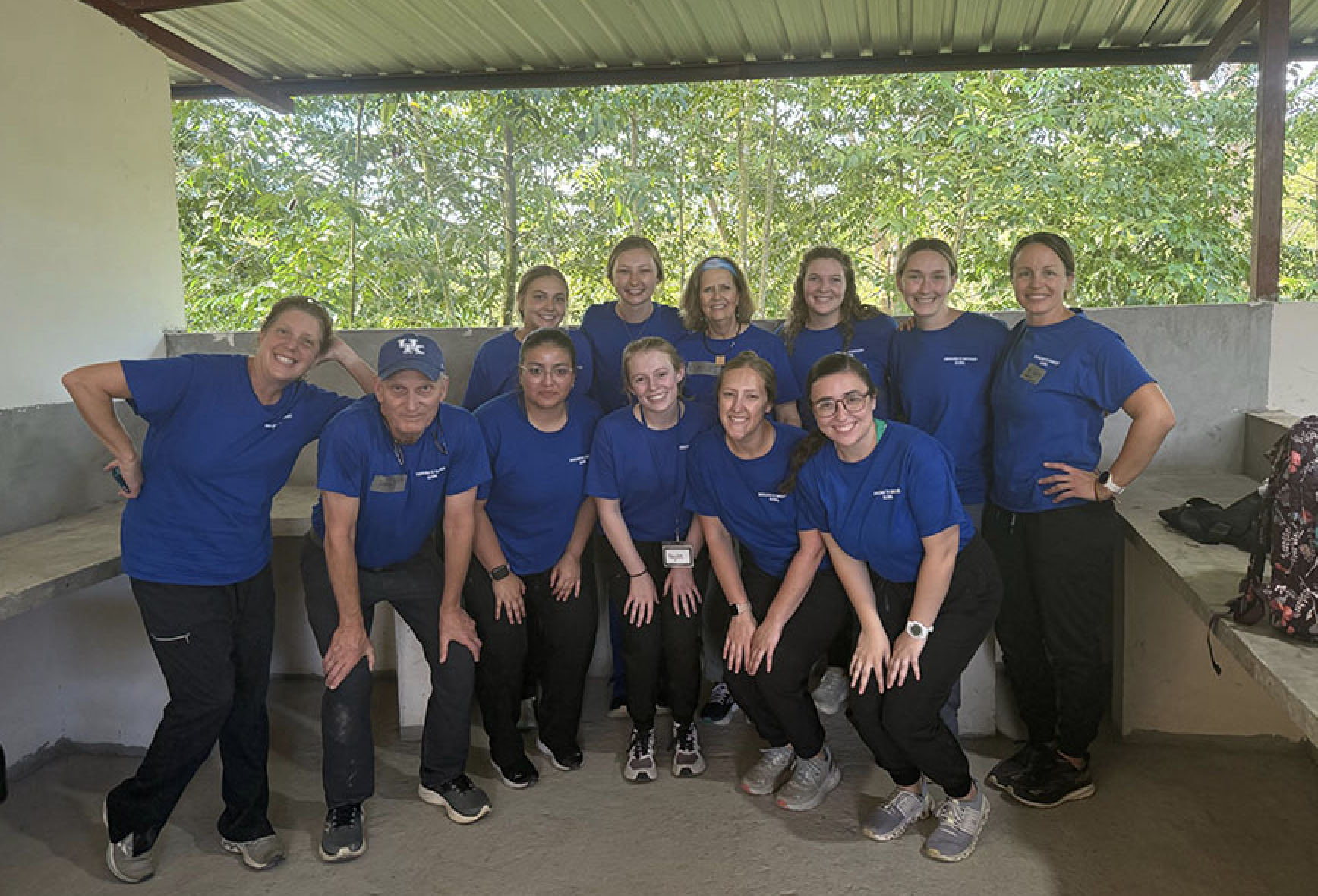
By Ryan Clark
CHS Communications Director
It seemed like everyone was talking about it — and everyone who’d gone said it was one of the best things they’d ever done.
So, for Julianna Adkins, the decision was simple.
She was going on the Shoulder-to-Shoulder Global trip to Ecuador.
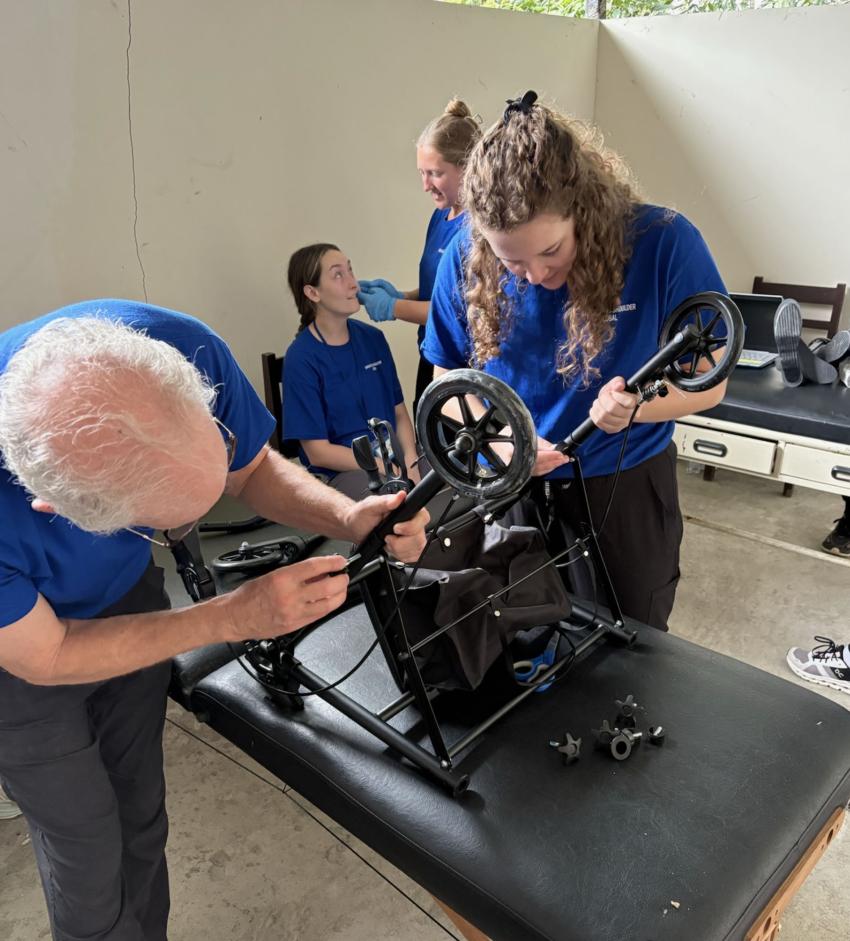
“Hearing that, combined with my commitment to serving others, sparked my interest and motivated me to apply,” Adkins said.
Shoulder to Shoulder Global (STSG) is a UK Global Health Initiatives organization that integrates academic and community partners to improve the health and well-being of an underserved community in Santo Domingo, Ecuador.
Students, faculty, staff and community members can participate in these transformative, short-term experiences in global health (StEGH).
Recently, Adkins — along with a handful of other Human Health Sciences majors from the College of Health Sciences — traveled to Ecuador to provide help by serving in clinics.
“I wanted to go on the STSG trip to Ecuador to gain a deeper understanding of healthcare in other countries and to experience what it’s like living and working in underserved communities,” said Adkins, a 21-year-old senior pre-Physical Therapy major from Elizabethtown, Ky. “I was especially excited about the opportunity to serve in the clinics and make an impact by helping others.”
For four days, Adkins worked in clinics in different communities as a scribe and a tech for the physical therapists, assisting with patient care and documentation.
“This trip was an incredible opportunity to learn from both professionals and students from around the world,” she said. “I gained valuable insight into interprofessional care and saw first-hand how collaboration across healthcare disciplines produces comprehensive care. It also gave me a broader perspective on global healthcare and deepened my passion for serving underserved communities.”
Over the past few years, the College of Health Sciences has put an increased focus on Education Abroad, launching a CHS Global Initiatives website and emphasizing the benefits that a trip to a foreign country can add to one’s overall college experience.
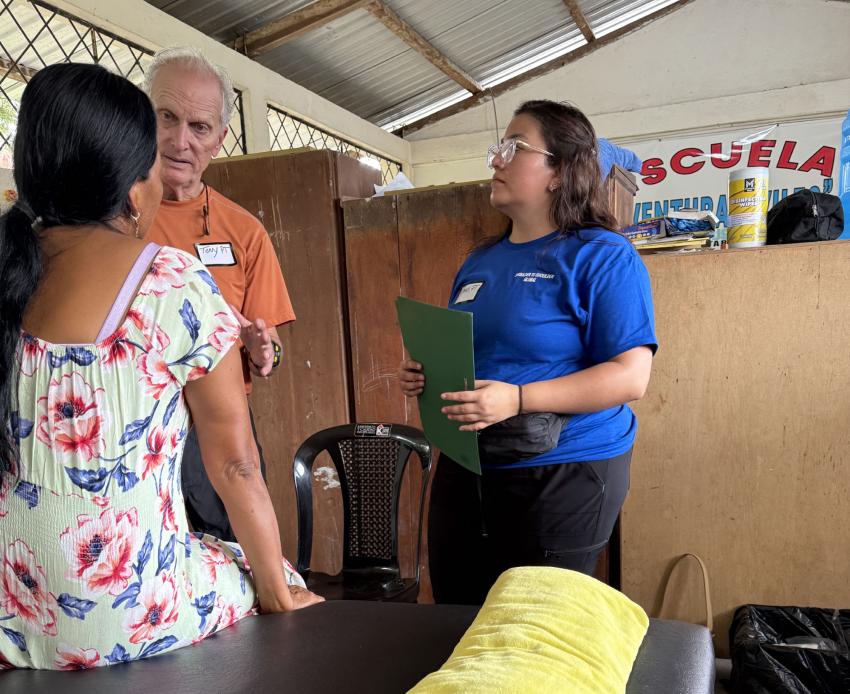
“Yes, there is ample evidence that suggests students who participate in Education Abroad are more likely to succeed in college,” said Brendan O’Farrell, PhD, faculty member in the Department of Health and Clinical Sciences and former director of the Interprofessional Healthcare Residential College.
For instance, the Consortium for Analysis of Student Success through International Education — a national consortium and data project dedicated to improving research on the impact of international education interventions, including education abroad — noted through extensive data from 36 U.S. institutions, including the University of Kentucky, that students who take education abroad trips reduce their time to degree, earn a higher GPA at degree, and are more likely to graduate in both four and six years.
As a result, CHS students who participate in education abroad are more likely to:
- Enhance their own intercultural understanding and maturity.
- Show increased levels of independence.
- Broaden their academic understanding with a global perspective.
- Make themselves more competitive on the job market and/or during the graduate/professional school application process.
Mallory Hamilton, a 21-year-old rising senior HHS major (Pre-PT) from Springfield, Ky., said she first heard of the STSG trip while in O’Farrell’s Global Healthcare course.
“After learning about the importance of global healthcare and how it can have an impact on local communities, I knew I had to be a part of this program,” Hamilton said. “I wanted to be a part of something much bigger than myself, while also gaining valuable knowledge about my future profession.”
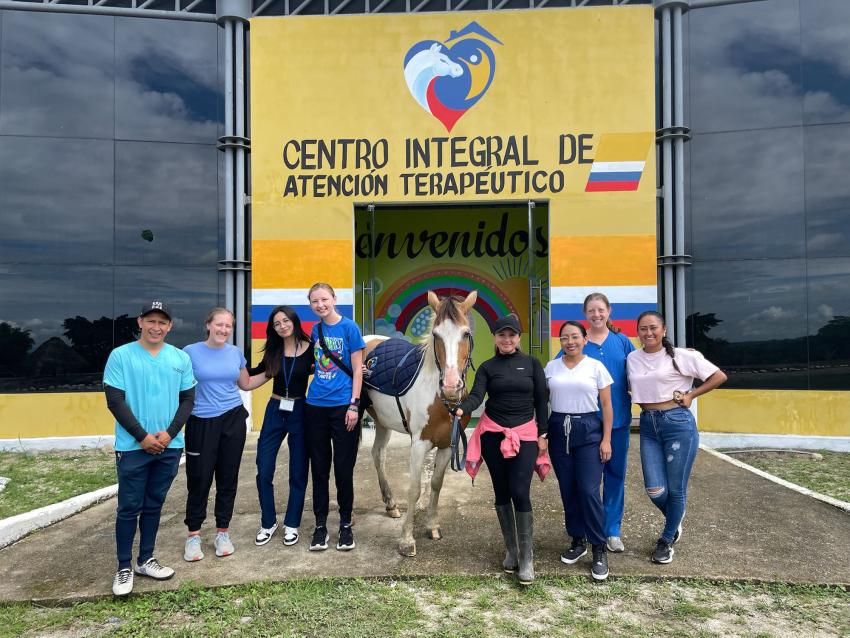
She said she had a “front-row seat” to see how physical therapists treat patients in a different country with limited resources, while retrieving donated items to give to patients, documenting visits, and assisting the physical therapists and students in whatever capacity that was needed.
“I believe that this experience was more impactful to me than it was to any of the patients we treated,” Hamilton said. “The patients and healthcare professionals may not have realized it, but the time they dedicated and the information they taught me was invaluable. From the patients, I learned to be thankful in all circumstances, to be willing to accept help, and the importance of expressing gratitude to others. From the providers, I was taught how to be a provider with impact, how to treat patients under difficult circumstances, and the importance of giving more than you take.”
Both Hamilton and Adkins said they were surprised at how grateful the patients were.
“Every person we treated expressed their appreciation, even for baseline care,” Adkins said. “It was incredibly refreshing and humbling, and it really increased my appreciation for the resources and opportunities I often take for granted.
“I would encourage anyone considering this trip, or any education abroad trip, to take advantage of every opportunity they can,” she continued. “If you have the means to go, you won’t regret the experience, knowledge and memories you’ll gain. While you are there, be intentional about appreciating what is going on, reflecting on what you are learning, and the impact you are making.”
For more information about education abroad at UK, visit: https://chs.uky.edu/global-initiatives/education-abroad
